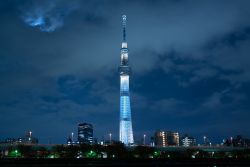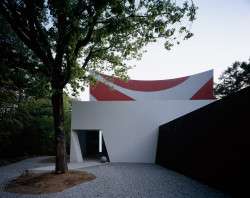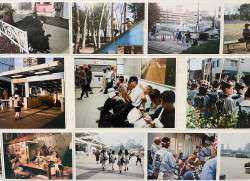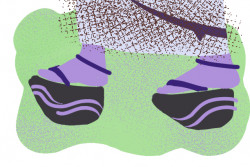
Originally published on metropolis.co.jp on April 2010
Music journalists are notorious for spouting often-meaningless genre descriptors like “spazzcore,” “anti-folk” or “micro house.” And this writer is as guilty as anyone else. Yet I can’t help asking one of the purported founders of “post-rock” (sometimes called “instrumental rock”) what the genre is all about.
“In the early ’90s you could feel the landscape shifting,” Tortoise’s de facto leader, multi-instrumentalist John McEntire (above right), answers from his Chicago studio. “Maybe I was unique in that I’d studied at [celebrated arts college] Oberlin and had access to contemporary classical. It just felt like there was an opening all of a sudden for different ideas to be nurtured in a band context. I could feel that people all over were getting wind of these possibilities and looking beyond the standard drums-bass-guitar-vocal, three-minute rock song.”
At a time when the music scene was dominated by alt-rock bands, Tortoise arrived like an interplanetary probe from a distant civilization. It’s hard to remember now, after almost two decades of post-rock, but its music—influenced by progressive rock, Krautrock, fusion, electronica and a dozen other styles—was so different from the prevailing stripped-down, lo-fi ethos of the time as to engender the question: was it, in fact, rock at all?
“Oh, we’re definitely rock,” says McEntire emphatically. “It’s more a process of elimination. It’s definitely not jazz. There may be a few jazz chords, but it doesn’t follow any of the conventions of jazz. And it’s obviously not a lot of other genres that I don’t need to mention. And it’s not contemporary classical. So what is it? It’s gotta be rock.”
Whatever you want to call Tortoise’s music, the fact is that this group of “middle-class white dudes” has exerted a huge influence on Japan. Successful vocal-less post-rock outfits like Mono and Lite—the latter of which McEntire recently produced—are not only recognized within the country, but regularly perform to enthusiastic audiences overseas.
Aside from a one-off at Fuji Rock last year, Tortoise’s first tour of Japan in five years is sure to see them welcomed back as conquering heroes. For the engagement at the spacious La Foret Museum, they bring their sixth and latest album, Beacons of Ancestorship, which is named after a book by “outsider poet” John Barton Wolgamot that essentially repeats different iterations of the same sentence for over 100 pages. Tortoise’s music similarly exists outside the mainstream, but McEntire stresses that Beacons is not a concept album based on the book.
“I found his story and the work itself to be absolutely fascinating,” he says, “but in general, album titles arrive the day the artwork is due—our best work is done under total duress.”
Compared to previous albums, Beacons features noticeably less mallet work from vibes players Dan Bitney and John Herndon (bassist Doug McCombs and guitarist Jeff Parker comprise the rest of Tortoise), and more in the way of synths and keyboards.
“We showed up in the studio every day and after a week we had all these ideas but they weren’t getting developed—and nobody was having any kind of motivation,” McEntire says. “So it got to the point where we went back to the practice space and worked out the songs, as opposed to constructing them in the studio. We got partway through the process and then had to step back and actually write songs that we could perform, and then record them. It seems obvious, but not always for us.”
With its mysterious and alluring—but occasionally arid—textures and off-putting song titles like “Yinxianghechengqi,” Beacons sometimes seems overly intellectual. But experienced live, Tortoise offers a rather different and more compelling experience at a time when rock audiences are ready for more demanding music.
“We have to assume that’s the case,” says McEntire, “or otherwise we wouldn’t have ended up still doing this 20 years later.”
When the bandmates get back from Japan, they’ll be busy writing a major work to be performed at the Frank Gehry-designed Millennium Dome. But in the meantime, McEntire has his mind on something more prosaic.
“The first time I came to Japan in ’94, the guy who brought us over took us to one of these tiny four-seat bars in Golden Gai in Shinjuku,” he recalls. “It’s my favorite bar in the whole world and I’ve got a bottle on the shelf. I’ll be looking for that and an amazing meal.”
Tortoise
Instrumental post-rock band. May 11, 7pm, ¥6,300. Laforet Museum, Roppongi. Tel: Smash 03-3444-6751.








